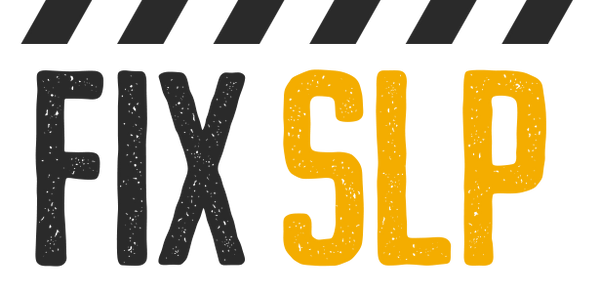Recent Medicaid reforms in North Carolina (NC) mark a transformative moment for healthcare providers, including Speech-Language Pathologists (SLPs). These changes are poised to expand access to services and streamline credentialing processes, benefiting both SLPs and their patients.
Streamlined Credentialing Processes for SLPs
Historically, NC Medicaid credentialing has posed significant challenges for many SLPs. The Certificate of Clinical Competence (CCC) requirement created unnecessary financial barriers. Thanks to the advocacy efforts of NC clinicians and Fix SLP, the state has made strides in simplifying the credentialing process.
The Announcement
The statute language for billing Medicaid in North Carolina has always allowed CCC equivalency. However, there was previously no clear way to provide proof of equivalency. On April 22, 2024, NCTracks emailed providers with the following announcement:

New Attestation Form Required for NC Medicaid Speech-Language Pathologist Taxonomy
NCTracks now requires that providers completing an initial enrollment, re-enrollment, or re-verification/re-credentialing for taxonomy 235Z00000X - Speech-Language Pathologist or adding this taxonomy to an existing record through a Manage Change Request (MCR) must ensure that the Division of Health Benefits (DHB) verifies compliance with 42 CFR 440.110(c)(2):
A "speech pathologist" is an individual who meets one of the following conditions:
(i) Has a Certificate of Clinical Competence from the American Speech and Hearing Association (ASHA).
(ii) Has completed the equivalent educational requirements and work experience necessary for the certificate.
(iii) Has completed the academic program and is acquiring supervised work experience to qualify for the certificate.
By completing this form, a clinician is attesting that instead of holding the Certificate of Clinical Competence from the American Speech and Hearing Association:
- You have completed the equivalent educational requirements and work experience necessary for the certificate.
- You have completed continuing education hours/units that satisfy ASHA requirements for retaining certification, regardless of whether you are certified.
Any material misrepresentation made to NC Medicaid regarding the attestation may result in an investigation by NC Medicaid and/or affect the organization's eligibility in the NC Medicaid program.
This form is available on the Provider Policies, Manuals, Guidelines, and Forms page.
Why These Changes Matter
NC Medicaid no longer mandates an ASHA number or CCC card for Medicaid credentialing, aligning with its existing regulations. This adjustment reduces administrative burdens and costs for SLPs, making Medicaid enrollment more accessible across all practice settings.
Clinicians can now sign an affidavit attesting that they meet CCC requirements without purchasing the CCC. Additionally:
- The North Carolina Board of Examiners for Speech-Language Pathologists and Audiologists does not require the CCC to obtain or maintain a state SLP license.
- No private insurance companies are known to require the CCC for credentialing or billing.
- Email team@fixslp.com with denial letters or contracts showing the CCC is the only pathway to credentialing or reimbursement.
This shift ensures that NC SLPs no longer need to hold the CCC unless their employer enforces a legacy policy. Employers can update such policies with appropriate education and resources.
Advocacy in Action
The changes in NC's Medicaid policies underscore the importance of advocacy within the SLP community. Efforts to reduce restrictive requirements like the CCC and expand access to therapy services demonstrate the power of collective action.
Fix SLP and other advocates remain dedicated to advancing reforms prioritizing patient access and provider autonomy. These efforts aim to enable SLPs to deliver high-quality care without unnecessary barriers.
Looking Ahead
North Carolina's Medicaid reforms are a blueprint for how policy changes can positively impact healthcare providers and patients. As SLPs adapt to these updates, they are well-positioned to lead the way in delivering innovative, patient-centered care.
Whether you’re an SLP in private practice, a school-based clinician, or part of a hospital team, these Medicaid changes represent a significant step toward a more inclusive and supportive healthcare environment.
